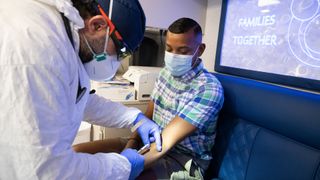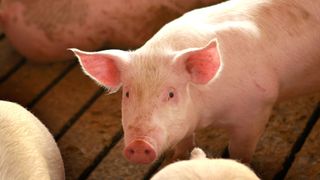
Nicoletta Lanese
Nicoletta Lanese is the health channel editor at Live Science and was previously a news editor and staff writer at the site. She holds a graduate certificate in science communication from UC Santa Cruz and degrees in neuroscience and dance from the University of Florida. Her work has appeared in The Scientist, Science News, the Mercury News, Mongabay and Stanford Medicine Magazine, among other outlets. Based in NYC, she also remains heavily involved in dance and performs in local choreographers' work.
Latest articles by Nicoletta Lanese
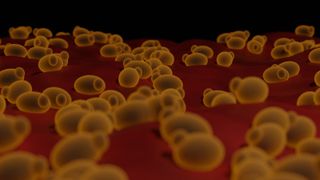
A woman kept getting drunk despite not drinking. Fungi in her gut were brewing their own alcohol.
By Nicoletta Lanese published
A woman kept mysteriously getting drunk despite not consuming alcohol. Turns out, a rare condition called "auto-brewery syndrome" was to blame.

Whooping cough outbreaks: Why is pertussis on the rise in several countries?
By Nicoletta Lanese published
Notable outbreaks of whooping cough, or pertussis, have raised concern in some countries.
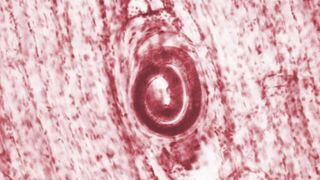
Parasitic worms infect 6 after bear meat served at family reunion
By Nicoletta Lanese published
Parasitic worms infected a family who'd shared a meal that included undercooked bear meat kabobs.
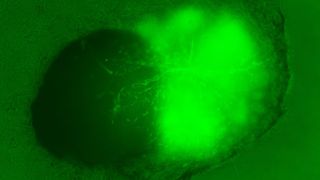
In a 1st, scientist grow mini brains with functional blood-brain barriers
By Nicoletta Lanese published
New "assembloids" grown from stem cells offer a tiny, working model of the blood-brain barrier.
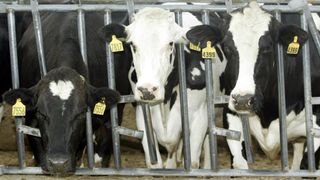
H5N1 bird flu has spread to human from cow in 2nd probable case, CDC reports
By Nicoletta Lanese published
A dairy worker in Michigan contracted an eye infection on a dairy farm where H5N1 had been identified in cows.
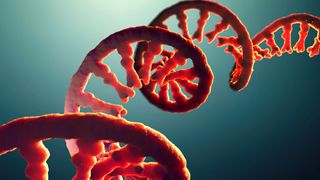
'Look at all this we don't understand': Study unravels whole new layer of Alzheimer's disease
By Nicoletta Lanese published
A new study begins to unpack an understudied aspect of brain biology and Alzheimer's disease.
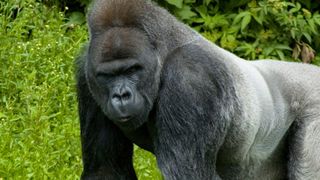
The same genetic mutations behind gorillas' small penises may hinder fertility in men
By Nicola Williams published
Scientists have used the gorilla genome to probe for previously unknown genes that may contribute to infertility in men.
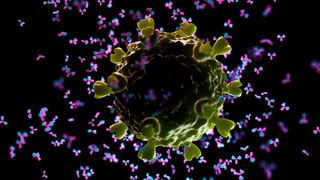
In a 1st, HIV vaccine triggers rare and elusive antibodies in humans
By Nicoletta Lanese published
Scientists have taken a big step toward making an effective HIV vaccine.
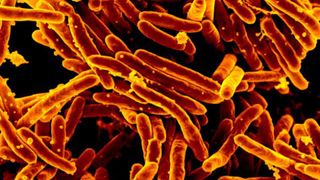
Sketchy stem-cell treatments in Mexico led to drug-resistant infections
By Nicoletta Lanese published
Three U.S. hospital patients contracted drug-resistant infections in Mexico in 2022 and were still being treated as of March 2024.
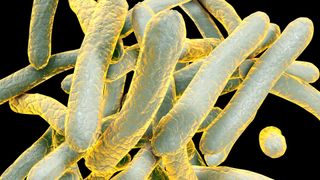
170 people 'likely exposed' to tuberculosis in Long Beach outbreak
By Nicoletta Lanese published
Health officials have warned of an ongoing tuberculosis outbreak in Long Beach, California.

'You certainly don't see this every day': Ultra-rare backward-spinning tornado formed over Oklahoma
By Nicoletta Lanese published
A pair of odd twisters spun out from a supercell thunderstorm in Oklahoma Tuesday (April 30).
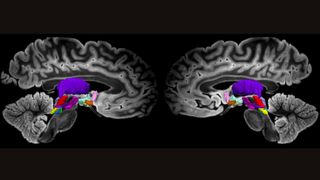
Super-detailed map of brain cells that keep us awake could improve our understanding of consciousness
By Nicoletta Lanese published
A new map of a brain network that sustains wakefulness in humans could help improve our understanding of consciousness.
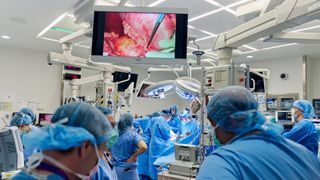
'We have combined two marvels of modern medicine': Woman gets pig kidney and heart pump in groundbreaking procedures
By Nicoletta Lanese published
In a medical first, doctors transplanted a gene-edited pig kidney into a human patient after giving her a new heart pump.
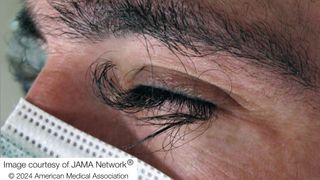
Chemo side effect caused man's eyelash growth to go haywire
By Nicoletta Lanese published
Some medicines can inadvertently cause people's eyelashes to grow incredibly long.
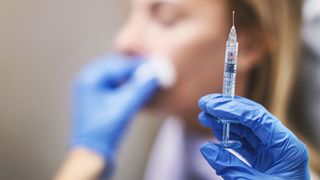
Fake Botox injections have sickened 22, hospitalized 11, CDC warns
By Nicoletta Lanese published
The CDC warned doctors about "counterfeit or mishandled" Botox injections that have caused clusters of illness in the U.S.
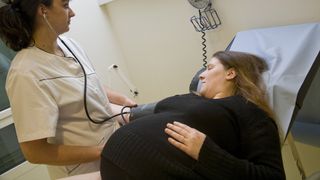
'Zombie cells' in the placenta may cause heart failure in pregnancy
By Nicoletta Lanese published
"Undead" cells in the placenta that spew proteins may help explain cases of heart failure that happen in late pregnancy and the early postpartum period.
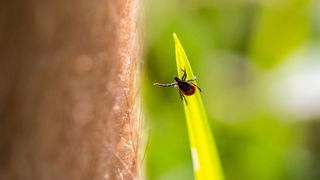
Tick season: What to know about bites, removing ticks and tick-borne diseases
By Anna Gora last updated
Knowing how to prevent and safely treat tick bites can help reduce your risk of developing tick-borne infectious diseases, such as Lyme disease and Rocky Mountain spotted fever.
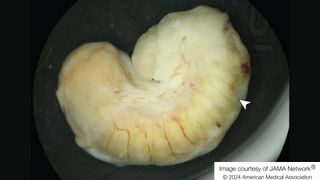
Parasite that lived in woman's eye for 2 years likely came from crocodile meat
By Nicoletta Lanese published
Doctors described a case of a rare infection called ocular pentastomiasis, which is caused by a parasite known to lay its eggs in snakes.
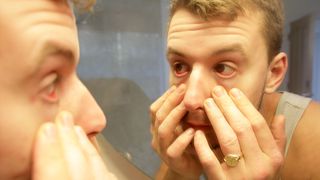
Eyes hurt after the eclipse? Signs of retinal damage, explained
By Nicoletta Lanese published
The April 8 eclipse inspired awe from many skywatchers — but now concerns about possible eye damage appear to be rising.
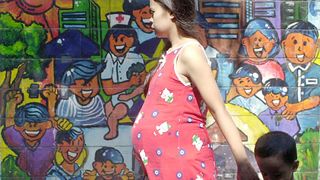
Pregnancy may speed up 'biological aging,' study suggests
By Nicoletta Lanese published
A study conducted in the Philippines links pregnancy to changes in the chemical tags that sit atop DNA, hinting that pregnancy speeds biological aging.
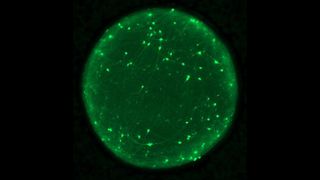
Lab-grown 'minibrains' help reveal why traumatic brain injury raises dementia risk
By Nicoletta Lanese published
Miniature models of the brain are helping scientists study the cellular damage inflicted by traumatic brain injuries.
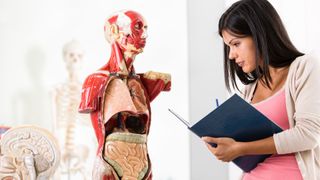
What are the systems of the body? Fast facts about the human body and how it works
By Rachael Rettner, Scott Dutfield, Nicoletta Lanese last updated
Reference Learn all about the human body's many systems and some of its individual organs, both vital and vestigial.
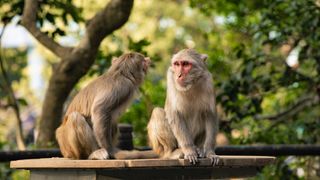
Man in critical condition after catching deadly 'B virus' from wild monkeys in Hong Kong
By Nicoletta Lanese published
As of April 3, the man infected with B virus was still being treated in the ICU, health officials said.
Get the world’s most fascinating discoveries delivered straight to your inbox.
